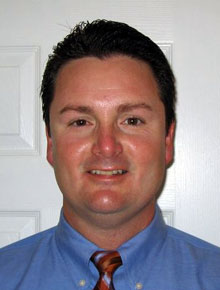Even though Brian Morehead had no sales experience, his first employer hired him because he liked what he saw. "I was a college athlete, and there were certain aspects of my personality that he liked," Morehead recalls.
It turns out the employer had a good eye for talent. After only six months at that foodservice equipment dealership, Morehead landed a high-end steakhouse chain as a client due to his persistence and perseverance and his career began to take off from there.
Six years ago, Morehead joined Singer Equipment Company and he now heads the dealership's national chain division, which handles between 15 and 20 accounts each year. His 2008 sales totaled more than $8.5 million.
FE&S: How do you get to know your customers' needs?
BM: There really is no formula. After making contact with a customer, one of the most important things I do is learn about their operation. I find out how their kitchen and bars operate and how the restaurant functions. I learn how management works. I design according to the customer's operational needs. My job is to offer potential solutions. I offer my expertise and opinions, but leave the decision making up to the customer because it is their concept. I can't convince them to incorporate the newest, hottest item because I like it.
FE&S: What are some of the steps you take to ensure you add value to your customer relationships?
BM: I work with a team of seven people who function with a mindset that puts customers first. We consider ourselves partners with our clients. Our projects are turnkey, from providing drawings, specifying equipment, ordering and installing. We focus on creating a smooth experience.
FE&S: How do you approach conversations with customers when things do not go according to plan?
BM: It's pretty easy. A vice president of construction for a national chain once told me that issues will occur because we're dealing with construction. We have to adjust and make decisions. When something goes wrong, it's important to be up front and honest with customers and provide them with a solution. No matter what the problem is, there's always a solution. Customers will respect those who take care of the problem. It's up to the project manager to try and circumvent problems. The extra step of managing a job can pay for itself. Project managers can save customers thousands of dollars by preventing problems.
FE&S: When managing multiple projects, how do you make sure that no details slip through the cracks?
BM: We hold weekly meetings during which our team goes through every job. This step helps everyone stay on the same page.
FE&S: Describe a situation where you successfully solved a difficult problem. BM: While working for a chain concept that was opening in a lifestyle center, we were on an extremely tight schedule, and the job was pushed back a couple of days. We were squeezed time wise, but we don't live in a nine-to-five world. We were able to get a team of installers in there Friday evening and worked all weekend, so the nine-to-fivers could finish the job the following week. Our mindset is that there are solutions to every problem, and we try to figure it out while working with our clients.
FE&S: Describe your most satisfying sale or interaction with a customer.
BM: It's the relationships I've developed with my clients that I value most. Many of them have become friends over the years. This is the most satisfying part of my job.
FE&S: What are the three attributes of a successful DSR?
BM: Focus, drive and persistence. To focus is to have a game plan. We have a team focus at Singer, where everyone has a role to perform to the best of their ability in order for others to be successful. A salesperson with drive has the ability to make cold calls when people say "no" 95 percent of the time. They realize that some days will be more successful than others. In terms of persistence, sales people need to be able to make multiple calls, even after constantly hearing the word "no." That's key in sales.




